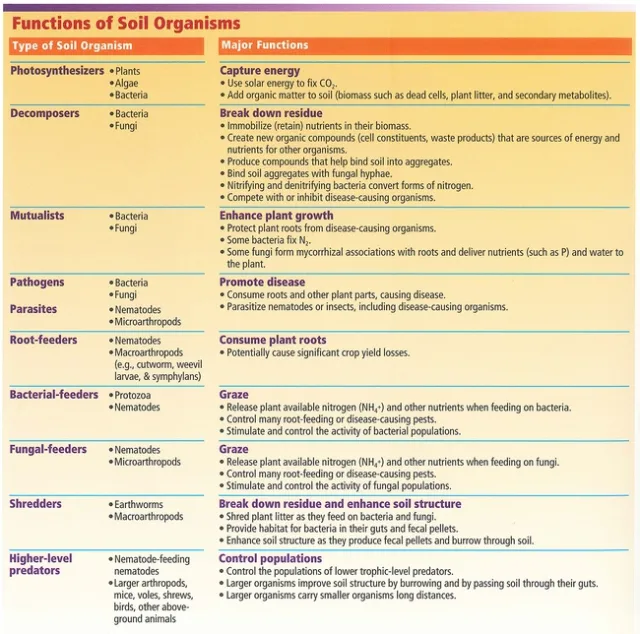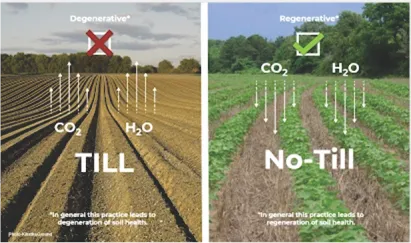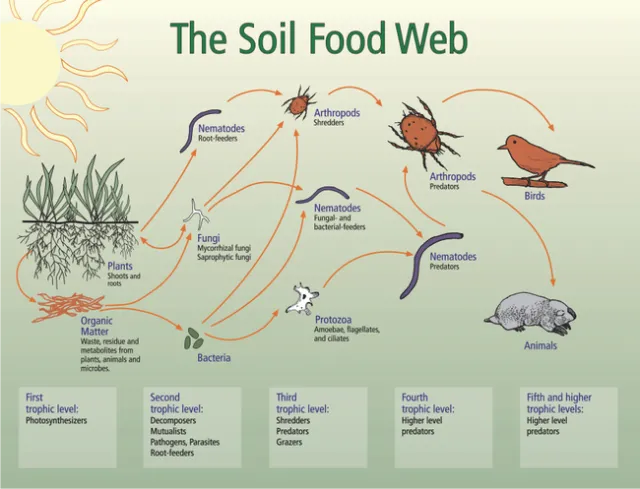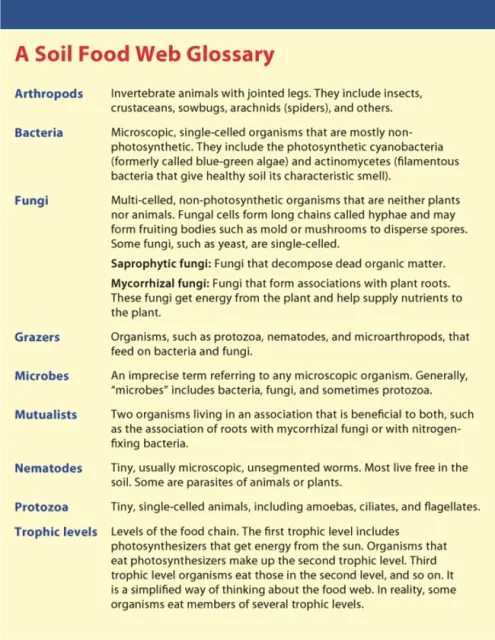Soil
Did you know there is a direct link between soil and climate change?
How we treat the soil in our home gardens and landscapes can either contribute to global warming or help decrease the effects of climate change. Our global temperatures are increasing due to the burning of fossil fuels, but also traditional farming and gardening practices have added greatly to the problem.

Historically, tilling the land and leaving it fallow between crops have been the normal practices, which releases carbon into the atmosphere. We have an overabundance of carbon and other greenhouse gasses trapping heat and raising temperatures. When soil is left bare, the sun bakes it to such high temperatures that it kills the essential organisms underground that plants need to grow.

Healthy soil is full of living organisms and is exceptionally complex, comprising a vast community of microscopic bacteria, fungi, protozoa, and nematodes, as well as earthworms, spiders, and insects. This soil community builds carbon stores through its interactions within the soil structure of living roots and decomposing organic matter.
Home gardeners have traditionally performed similar soil preparation methods as farmers. We dug throughout the garden to break up dirt clods and loosen the soil, while at the same time we were destroying the web of living roots and organisms needed to grow healthy plants. Instead, dig a hole only the size needed to accommodate a plant, avoid compacting the soil so air and water can penetrate, and keep the ground covered to retain moisture for roots and living organisms to stay cool. The added benefit is the carbon will stay stored in the ground where it can benefit the life there.

Napa Master Gardeners are available to answer garden questions by email: mastergardeners@countyofnapa.org. or phone at 707-253-4143. Volunteers will get back to you after they research answers to your questions.
Visit our website: napamg.ucanr.edu to find answers to all of your horticultural questions.
Photo credits: USDA.gov

